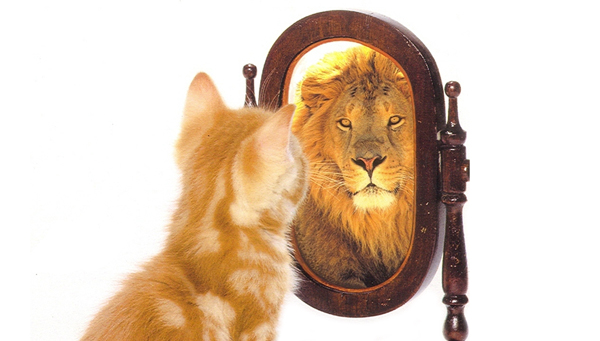 You’ve landed the job. You’re the new Major Gift Officer (MGO). While congratulations are in order, we hope someone gave you a different title to use externally, because you shouldn’t use “major gift officer” to present yourself to the world. Why? Because that’s the function you perform for the organization – to secure major gifts. It’s not the function you perform for the donor.
You’ve landed the job. You’re the new Major Gift Officer (MGO). While congratulations are in order, we hope someone gave you a different title to use externally, because you shouldn’t use “major gift officer” to present yourself to the world. Why? Because that’s the function you perform for the organization – to secure major gifts. It’s not the function you perform for the donor.
Who you are and what you call yourself is very important. It’s not just about a title. It’s about how you present – how you show up – to the donor. It’s also about your professional self-concept.
Jeff and I have said all along that major gifts work is “Not JUST About the Money.” Maybe I should rephrase that and say it’s not first about the money. It’s first about matching the interests and passions of the donor to the need your organization is meeting. That’s the first thing. The money follows that connection.
Since this is true, then you aren’t a “major gift officer” for the donor. You’re an investment counselor. You’re seeking to provide the donor with the best charitable investment counseling you can. (Tweet it!) Here, in no particular order of priority, are the 10 attributes of a charitable investment counselor who works with donors:
- Knowledgeable and Experienced – Knows the organization, what it does and why it does it. Knows about the outcomes of the programs of the organization. Experienced in matching donor interests and passions to the societal needs the organization is addressing.
- Puts donor interests first – Understands that the donor is a full partner, and that his or her interests need to be represented and protected.
- A person of integrity and truthfulness – Is open, honest and finds it easy to say “I don’t know.” Has a good reputation.
- Invokes confidence and trust – Donor naturally trust the person and has confidence in what he or she says.
- Proactive – Anticipates the donor’s needs and wants, and takes action.
- Good communicator – Communicates well, written and verbally. Is easily understood.
- Accepts responsibility – When something goes wrong, accepts responsibility.
- Keeps promises – Is a person of his or her word. Takes a promise seriously. Follows through.
- Committed to personal development – Is always learning how to do things better, including the latest trends in philanthropy. Is curious about the program solutions the organization is presenting to solve problems. Seeks to understand where donors are coming from.
- Able to teach – Able to explain how things work in an easy to understand way. It could be about program. Or the inner workings of a campaign. Or the elemental points of planned giving (before handing off to the planned giving person). Or how fundraising works. Or the need for overhead when delivering a program, etc. Able to speak clearly about formulas, systems, approaches and strategies.
You’ll notice that many of these attributes are personal characteristics, i.e. what you are like or who you are. The rest are what you know. Take a look at this list, and reframe how you think about yourself. Then get prepared to introduce yourself to that new donor.
I hope, when the donor asks who you are, you won’t say: “I’m a Major Gift Officer” or “I work in major gifts.” Instead, say something like this: “My job is to help match your charitable interests and passions to the needs of (insert the recipients of your organization’s work). What I seek to do, Mrs. Jones, is to make sure that what you care about actually happens.”
And as you’re saying and doing all of this, remember that this is who YOU really are. Yes, you are a fundraiser and a major gift officer. But most importantly, you are a charitable investment counselor.
Richard







This is really good, gents. It may be an assumption, but I would also recommend that the MGO be a donor to the organization they serve with a personal investment story to share.
How would you introduce yourself to a portfolio of donors, given high turnover at your organization? Being the new person has seemed to spoil momentum with my donor pool. How should I go about introducing myself before making a phone call or email. Perhaps a formal, hand written letter?